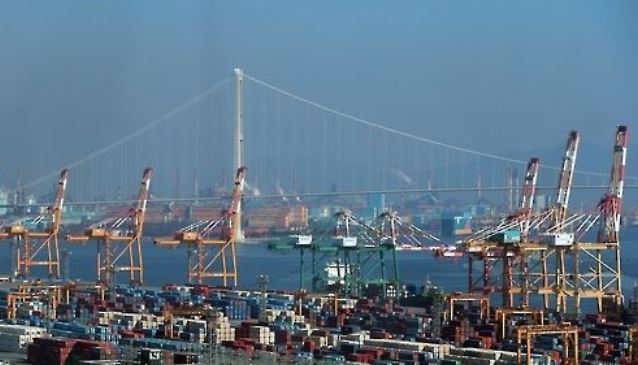GWANGYANG -- A ruling party legislator called Tuesday for urgent measures to revive Gwangyang Port, a major seaport in South Korea whose cargo processing volume is rapidly diminishing.
Rep. Lee Gae-ho, elected from the constituency including the southern city of Gwangyang, said the volume of cargo handled at the port has fallen for five consecutive years. "There were less than 2.3 million TEUs processed at Gwangyang last year, and the goal for 2.33 million TEUs this year is also unlikely to be met," he said during a parliamentary audit. TEU stands for twenty-foot equivalent unit, a measurement of a ship's cargo capacity.
 |
(Yonhap) |
The port has been losing business even more sharply after Hanjin Shipping, formerly the country's largest and the world's seventh-ranked shipper, was put under court receivership in September last year, leading to major changes in shipping alliances. This has severely affected Gwangyang Port, where 85 percent of its cargo arrived through such alliances. The figure fell to 35 percent after Hanjin's bankruptcy.
Lee compared Gwangyang Port with South Korea's largest port, Busan, which received 14.6 billion won ($12.9 million) to help it attract transit cargo. Gwangyang got 5.3 billion won, he pointed out. Busan Port also obtained 3 billion won from the city government in assistance, whereas Gwangyang Port got 130 million won from its own city, the legislator said.
"The government at one point had moved to build a two-port system involving Gwangyang and Busan," said Lee. "There needs to be enlarged state assistance to Gwangyang Port to keep the port viable and allow it to grow." (Yonhap)




![[Weekender] Korea's traditional sauce culture gains global recognition](http://res.heraldm.com/phpwas/restmb_idxmake.php?idx=644&simg=/content/image/2024/11/21/20241121050153_0.jpg)



